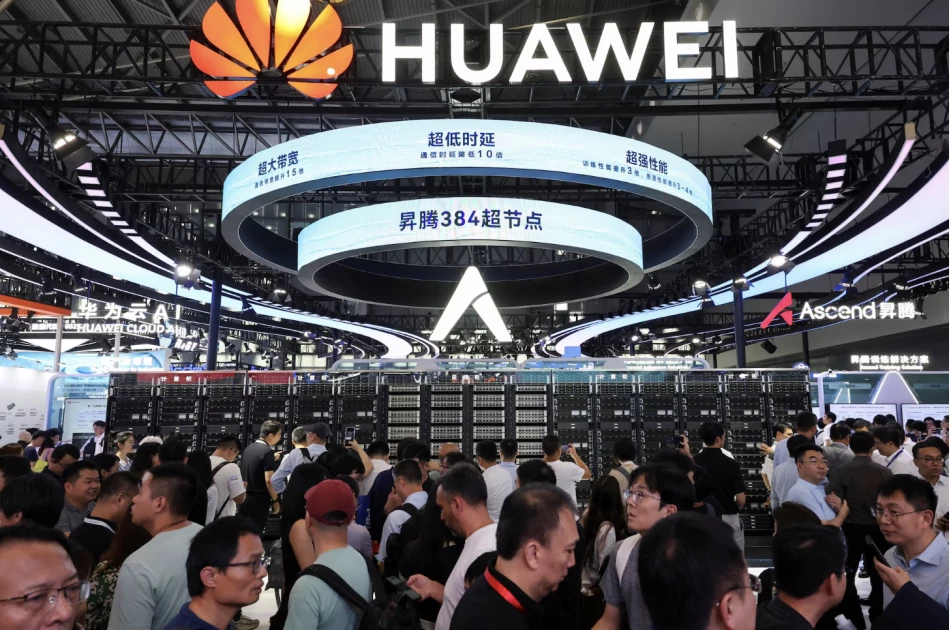Chinese tech giant Huawei Technologies has officially unveiled its cutting-edge AI computing system, the CloudMatrix 384, at the World Artificial Intelligence Conference (WAIC) in Shanghai. The system, which debuted to a packed audience, is being seen by analysts as a potential rival to Nvidia’s GB200 NVL72, the U.S. chipmaker’s most advanced AI system.
The CloudMatrix 384 incorporates 384 of Huawei’s latest Ascend 910C chips, arranged in a “supernode” architecture that allows for ultra-fast interconnectivity between the chips. Despite each individual chip being less powerful than Nvidia’s B200, Huawei’s innovative system design and massive chip count have enabled it to match and in some cases outperform Nvidia’s platform, according to semiconductor research firm SemiAnalysis.
“Huawei now has AI system capabilities that could beat Nvidia,” stated Dylan Patel, founder of SemiAnalysis, in a previous analysis published in April.
Huawei has strategically positioned itself as China’s leading AI chip supplier amidst increasing U.S. export restrictions on advanced semiconductor technologies. The CloudMatrix 384’s launch underscores Huawei’s ambitions to take a dominant role in the country’s expanding AI sector.
The system is already in operation on Huawei’s cloud platform, according to Huawei Cloud CEO Zhang Pingan, further signaling the company’s readiness to deploy large-scale AI solutions domestically.
While Huawei representatives at WAIC declined to elaborate on the technical details of the system, global attention around CloudMatrix 384 continues to grow. Nvidia CEO Jensen Huang acknowledged Huawei’s rapid progress in May, specifically citing the CloudMatrix platform as an example.
As the global race to dominate AI hardware accelerates, Huawei’s CloudMatrix 384 marks a bold move to challenge Western dominance and strengthen China’s position in the AI revolution.

